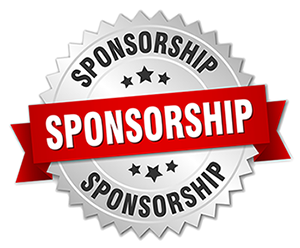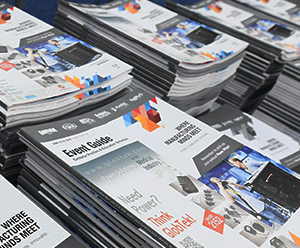Trade Show Sponsorship 101
How trade shows can help you promote your products
If you want to stand out beyond the other exhibitors at your next trade show, become a sponsor. Put your logo, slogan, and booth number on the show's tote bags, lanyards, or hospitality suite, and you'll put your company in the attendees' minds well before they enter the exhibit hall.
"The more attendees see your logo and theme, the more of a connection they will draw when they see your booth — and the more likely they'll feel inclined to stop and chat," says Shira Leffel, head of content and copy for marketing agency Quality Score.
She adds that sponsorships can also give your company prominence and prestige. "If you envision and aspire for your business to be an industry leader, rather than just an industry player, it's a good idea to take on bigger roles within these events, such as conference sponsorship."
The type of sponsorship you pick depends on your goals for the show. Educational activities can present your firm as an industry authority, especially if you bring your leading employees as speakers. "We like to show off our thought leaders at shows," says Mike Pizzi, events and communication manager at medical testing company Nelson Labs. "These promotions generate leads. We've seen where people saw some of our educational presentations, and then they came by the booth."
Educational sessions come in a variety of formats, from short product demonstrations to thorough explorations of new technology and business trends. At our recent Medical Device and Manufacturing shows, the engineering and manufacturing company Emerson sponsored Lunch & Learn events. Lunch & Learns run longer than most other educational sessions, which suited Emerson just fine. "We were introducing a new product, and we thought it was an excellent venue at a trade show to speak to attendees in depth," says Elyse Davis, advertising and public relations specialist at Emerson's Automation Solutions division. "We had every seat in that room filled, 70 to 75 people."
Education at advanced manufacturing shows tends to reach an important but narrow group: specialists who understand sophisticated technology. If you'd rather contact a wider range of people, you should take a different approach.
Texas's East Montgomery County Improvement District, located north of Houston, wants advanced manufacturing companies to set up operations there. The district places ads in trade-show event guides, which all attendees receive when they check in. What's more, the district has sponsored mega signs, extra-large posters placed in high-traffic areas of convention centers like New York's Javits Center. "A big place like the Javits Center requires a big 'STOP' sign, something that will get people's attention," says Kelley Mattlage, the district's chief communications officer. "Believe me, a seven-foot sign does that."
The signs do more than interrupt an attendee's stroll. "We had people stop by and inquire about our financial incentives for business expansion, and they specifically mentioned they saw our poster and were interested. These interactions led to strong leads for us," Mattlage says.
A smart exhibitor can find or create a sponsorship for almost every purpose. If you want a show's attendees to associate your company with smart, futuristic technology, you can sponsor the show's mobile app or one of its other digital features. A company that wants to emphasize its devotion to making customers happy can host a party or another social event. If you're exhibiting in a region or market where you don't have a deep list of contacts, you can write an email introducing your company and arrange for show organizers to send the message to attendees.
With a clear goal and a little imagination, you can use sponsorships to turn your next show from satisfactory to spectacular.



